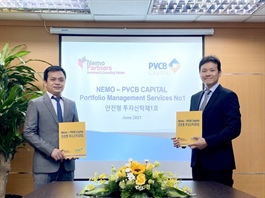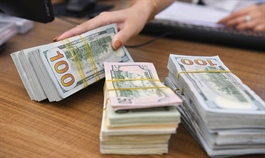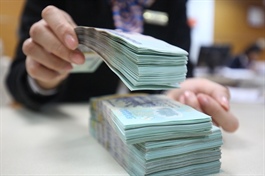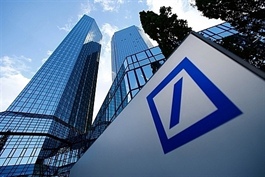Unsecured debts require regulation
Unsecured debts require regulation
Unsecured loan sales may see growth accelerated in response to a Vietnamese government ban on debt collection services – however, experts believed a clearer legal framework and firmer rules would help spur a more substantial unsecured debts market.

Unsecured debts require regulation, illustration photo (source: freepik.com)
|
VietinBank has just announced an auction to sell consumer loans to recover debts – the very first commercial bank exploring this option.
The package of nine debts includes small loans, valued from VND1.68 million ($73) to VND17.58 million ($770). The consumer loans are unsecured and the starting selling prices are equal to their book value. The total value of nine debts is around VND75.5 million ($3,300).
The bank will select the buyer with the highest bid that is at least equal to the starting price of each debt. The starting price does not include any costs regarding to fee for ownership transfer and other costs, if any, when purchasing the debt.
These costs shall be solely borne by the auction winner. The down payment is also equal to the starting price of the debt.
“Loan sales are not a new phenomenon. Collateral-backed loans are quite common as a part of banks’ asset and liability management,” said Truong Thanh Duc, director of ANVI Law Firm. “They often sell loan packages with collateral such as real estate, machinery, equipment, factories, and cars, among others, while unsecured consumer loans sales are among the first of its kind for a commercial bank.”
A representative of VietinBank said that selling consumer loans is one of the bank’s normal operations, according to regulations, to handle and recover debts.
“Perhaps this is the first time that a commercial bank has offered unsecured loans sales to the public, so it attracts a tonne of attention. We will continue follow our precedent cases on debt sales. At the first stage, we set the initial price equal to book value. If these debts cannot be sold, we would lower the price later on,” the representative said.
Duc of ANVI said that it is not just “a walk in the park” to sell consumer loans at a book value, coupled with interest and late payment penalty interest. Banks can only sell loans at a price equal to 50-70 per cent of their book value even for collateral-backed ones.
The question of whether or not VietinBank could successfully execute their sales still remains unanswered, but it could set a precedent for other lenders to follow suit.
Financial expert Huynh Trung Minh noted that in other countries, trading unsecured debts is familiar to financial institutions and debt buyers, and consumer debts are important for buyers to expand their customers’ database and information.
According to Vietnam’s revised Law on Investment, debt-collecting businesses are now banned in Vietnam as part of local government action to protect customers’ rights.
However, this is considered a strict approach to consumer finance companies, since the majority of their customers are underbanked or unbanked.
Currently, there are nearly 20 consumer finance companies operating in the country. In the last 10 years, FE Credit has emerged as the top player, accounting for around 52 per cent of market share, far ahead of the rivals Home Credit (17 per cent) and HD Saison (11 per cent).
Masataka “Sam” Yoshida, head of the Cross-border Division of RECOF Corporation and CEO of RECOF Vietnam said, “Putting a stop to the operation of debt collectors poses challenges to lenders or creditors where their collection performance will be affected. Consumer finance companies need to make changes to meet these evolving regulatory requirements. This will be inconvenient, time-consuming, and expensive at first but creates an opportunity for the consumer finance companies to rethink their collections strategies and operations.”
On the other hand, Duc of ANVI shared his concern that it would be tough to take advantage of unsecured debts. Therefore, he hypothesised that the sale of the debts is just another approach to dodge the debt collection service ban. Duc also stated most debt collectors, after the Law on Investment took effect, have not dissolved, but instead converted their business to debt trading/buying to be legally in line with the current law.
If banks can sell their unsecured loans, it is likely that they will transfer their debts to ensure operational efficiency. Furthermore, driving forces behind loan sales may stem from a better cashflow statement and financial information to the public.
“We might also see an increasing trend of selling or trading the debts from those who are not strong enough in debt collection. Debt sales can be an effective tool for certain accounts, especially those with low expected recoveries. However, it might be better implemented if policies and procedures for debt sales could have clearer guidance from the government,” Yoshida of RECOF added.























